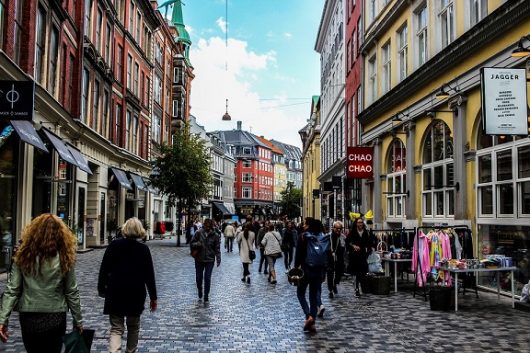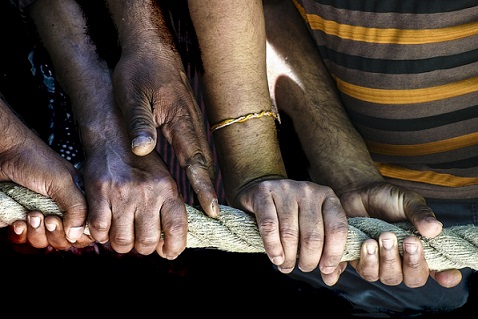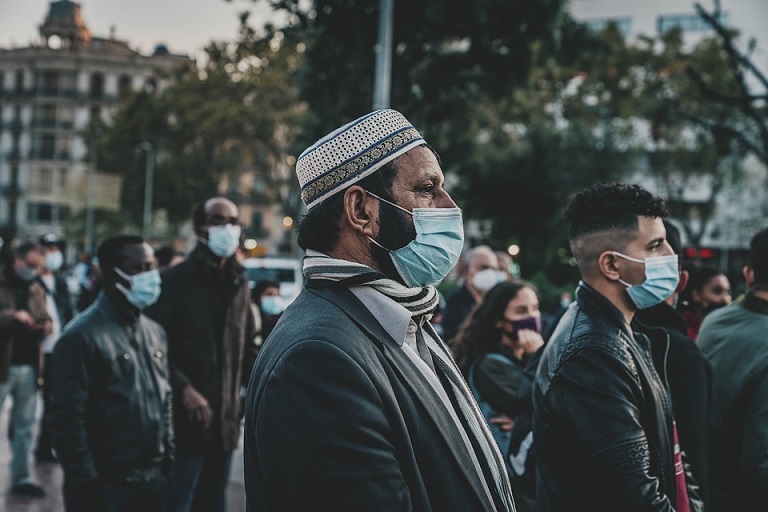Clearly the issue of multiculturalism is ultimately about social change. This is together with the capacity to live in a ‘tolerant’ way with other groups that hold diametrically opposing beliefs.
.
 Nigel Pocock
Nigel Pocock
.
But what if these groups believe in tyranny, whether of theocracy, materialism, secularism or of any other kind? Is there a limit? I believe there is. It is made clear by the paradox of an omni-tolerant society.
An omni-tolerant society is very likely at some stage to allow violent and tyrannical groups (because they were ‘tolerated’) and these groups will then destroy tolerance in favour of the one-party state. Omni-tolerance will, in the end, destroy tolerance. ‘Tolerance’ therefore needs to be qualified. It essentially also needs free institutions in order to thrive: free scientific research, a free press, and so on. But, just as with tolerance, no controls on freedom will give groups bent on destroying freedom, access to the control they crave, and they will then destroy freedom of science and the press.
So an optimum between control and freedom, and control and tolerance, has to be arrived at.
 Guiding this optimum needs to be a moral tether: to minimize suffering. This is not an absolute, for there is movement around a tether.
Guiding this optimum needs to be a moral tether: to minimize suffering. This is not an absolute, for there is movement around a tether.
The discussion then becomes one about power, and how it is exercised. It is about the dominant culture – at present an intolerant secularism which believes it has all the answers.
It uses the law to implement social changes in line with these ideals. In some areas, this has undoubtedly been good, as with the desegregation laws in America, and the resocialising of white attitudes towards the access to rights of Black people. Ideally, such secularising would like to remove all supernaturalism from theocratic groups, for there is the source of their power – thus neutralising them.
In this way, far from increasing pluralism, secularising agencies and ideologies seek to reduce plurality, and engineer integration through the creation of a secular monoculture.
 Thus we see that a society that is trying to move towards an ideal very similar to that of medieval monocultural Catholic Europe.
Thus we see that a society that is trying to move towards an ideal very similar to that of medieval monocultural Catholic Europe.
Strange indeed, that that this should be the model for the materialistic secularising state! Have things moved outside of the optimum that makes tolerance and freedom work, to be held in their delicate equilibrium?
Dictatorship may be more efficient in the short term, but an open society is more efficient in the longer term.
This is because problems are brought out into the open, discussed and solutions tried. Dictatorships implement five year plans, or great leaps forward, with very little or no discussion.
Terrible suffering may ensue, with no redress for the victims. They are necessary collateral. They are the victims of intolerance. Thus a compassionate society focuses on problems (in line with a goal of removing suffering), and the solution to problems.
 It does not try to avoid them. It encourages plurality of viewpoints, considering as many factors as possible; looks at other people’s viewpoints, and weighs up the plusses and minuses of the arguments.
It does not try to avoid them. It encourages plurality of viewpoints, considering as many factors as possible; looks at other people’s viewpoints, and weighs up the plusses and minuses of the arguments.
If a secularising state is using education and language to achieve a lowest common denominator, it is in danger of becoming the very thing is pretends to loath: a persecuting dictatorship and a monoculture. Monoculture, is, after all, so much easier to control.
(Photos: Pixabay)












.jpg)












